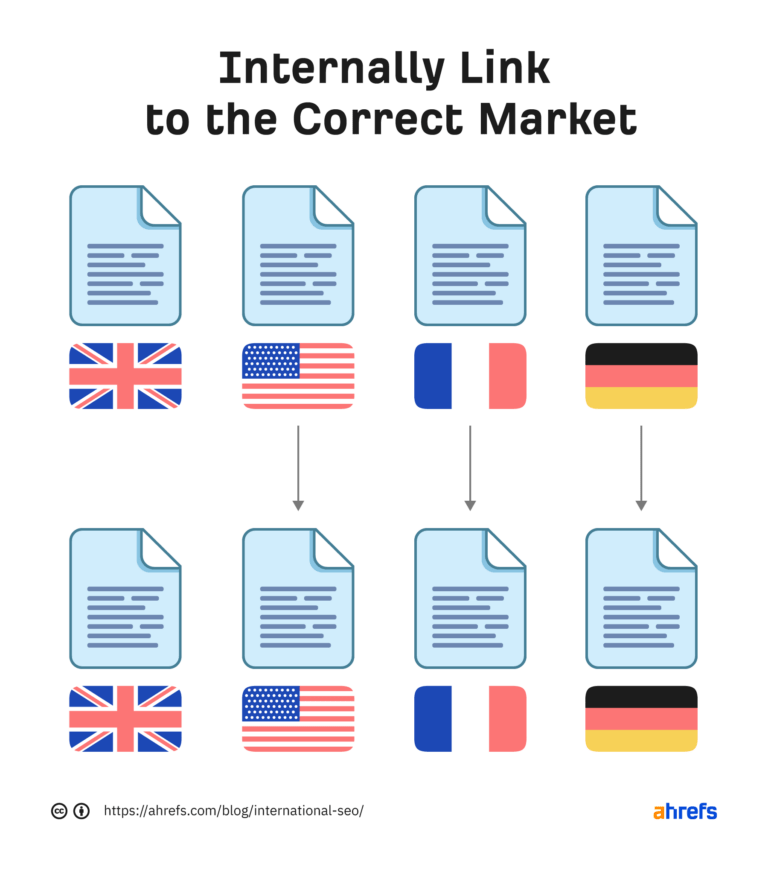Go Global with Confidence: International SEO Best Practices
Go Global with Confidence: International SEO Best Practices
Blog Article
Navigating the Digital Landscape: Leveraging International Search Engine Optimization for Cross-Border Success
In today's interconnected digital globe, companies are significantly looking beyond boundaries to touch right into international markets. The complexity of navigating the electronic landscape on an international range requires a nuanced technique, from understanding the fundamentals of International SEO to executing geotargeting and multilingual key words strategies.
Comprehending International SEO Principles
Browsing the ins and outs of international SEO needs a solid grasp of essential principles to properly increase on the internet exposure throughout borders. One important aspect of international SEO is understanding the significance of localization.
Furthermore, having a clear understanding of geo-targeting is essential. This includes showing to browse engines the specific countries or regions a web site is targeting. Executing hreflang tags is one method to connect this info, ensuring that the appropriate variation of a website appears in the search engine result for a user in a specific place.
Moreover, understanding the influence of neighborhood internet search engine and social media sites systems is vital for international SEO success. While Google is leading in several areas, nations like China have their very own search engines like Baidu, calling for customized strategies for each platform to take full advantage of on-line presence (International SEO).

Targeting Multilingual Keyword Techniques
Creating multilingual keyword phrase approaches is crucial for efficiently getting to diverse international target markets and making best use of on-line presence across various linguistic areas. When targeting multilingual key phrase approaches, it is crucial to conduct comprehensive research to recognize the certain search terms and phrases utilized by the target market in each linguistic area. This involves not just equating key words but also taking into consideration cultural subtleties, regional languages, and search trends distinct to each target market.
To develop a successful multilingual key phrase technique, it is necessary to prioritize relevance and search intent. Search phrases ought to line up with the content on the website and reverberate with the social context of the target audience. Using tools such as Google Keyword Planner, SEMrush, or Ahrefs can aid determine high-performing key words in various languages and analyze their search quantity and competition degree.
Additionally, monitoring and assessing the efficiency of multilingual key phrases consistently is vital for maximizing and refining the technique with time. By constantly adapting to adjustments in search behavior and fads, organizations can enhance their online visibility and draw in more international website traffic to their web sites.
Executing Geotargeting and Hreflang Tags
When aiming to improve international SEO methods, including geotargeting and hreflang tags is crucial for enhancing website visibility throughout different areas. Geotargeting includes customizing web content to specific places, ensuring that users in various areas obtain appropriate details. By implementing geotargeting, services can boost their regional search rankings and draw useful reference in region-specific website traffic.

Optimizing Website Framework for Global Exposure
To further boost international Search engine optimization methods beyond geotargeting and hreflang tags, optimizing the web site framework is essential for accomplishing worldwide presence and maximizing reach across different regions. A well-structured site not just boosts customer experience yet additionally assists in search engine crawlers in comprehending the web content and context of the website.
In addition, developing language-specific subdirectories or subdomains can help have a peek at this site browse engines provide the appropriate version of the internet site to individuals based on their language choices, additionally boosting the total customer experience. Furthermore, optimizing link frameworks to consist of appropriate keywords and geotargeted terms can enhance the site's exposure in different regions. By structuring the internet site effectively for international target markets, organizations can enhance their opportunities of attracting worldwide web traffic and broadening their reach across boundaries.

Monitoring and Analyzing Cross-Border Efficiency
Effective monitoring and studying of cross-border performance is essential for assessing the success of international SEO methods and determining possibilities for enhancement in worldwide reach and visibility. By closely tracking crucial performance signs (KPIs) across various markets, organizations can gain useful insights into the efficiency of their cross-border search engine optimization efforts. Keeping an eye on metrics such as natural web traffic, keyword rankings, conversion rates, and bounce prices can provide a thorough sight of how well a site is carrying out in different areas.
By comparing performance throughout different countries, areas, or languages, business can pinpoint effective approaches and localize web content to better cater to certain target audiences (International SEO). Regular evaluation of SEO efficiency on an international range ensures that business can adjust their methods swiftly to take advantage of on arising opportunities and preserve a competitive edge in international markets.
Final Thought
To conclude, worldwide search engine optimization plays a crucial role in attaining cross-border success by maximizing internet sites for global visibility, targeting multilingual key words strategies, applying geotargeting and hreflang tags, and keeping an eye on cross-border useful content performance. By understanding the principles of worldwide search engine optimization and enhancing site frameworks as necessary, services can efficiently reach and involve with their target market across different areas and languages. This critical approach is crucial for increasing market reach and driving on-line growth in today's digital landscape.
Report this page